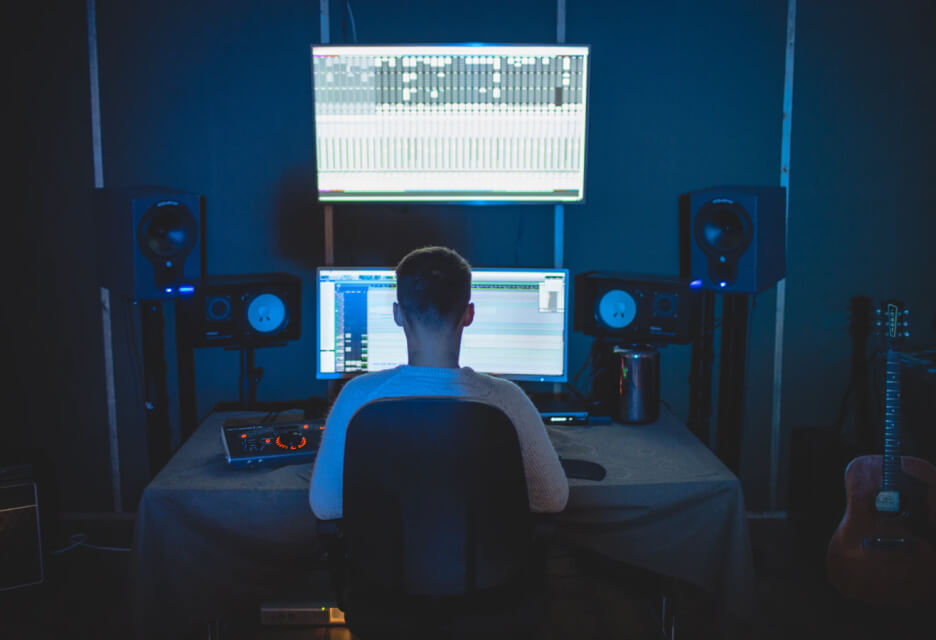Fundamental Music Making Skills to Master
Introduction: Whether you’re a beginner or a seasoned musician, there are key skills that every artist should develop to thrive in the industry. This post will highlight five essential skills that can elevate your musicianship and give you the tools to grow as a performer and creator.
Skill 1: Ear Training
Developing a strong musical ear is crucial for musicians, as it enables accurate identification of chords, intervals, and melodies. This skill enhances improvisation, composition, and overall musical understanding.
Exercises and Apps to Improve Ear Training:
- Perfect Ear: Offers a variety of exercises, including interval recognition, chord identification, and rhythm training, suitable for musicians at all levels. UMA Technology+4EarBeater+4Learn the Ukulele+4
- EarBeater: Provides over 200 exercises focusing on intervals, chords, and scales to help train your ear effectively. UMA Technology+4EarBeater+4EarBeater+4
- EarMaster: A comprehensive app for ear training, sight-singing, and rhythm practice, used by music schools and educators. EarMaster+1Learn the Ukulele+1
Regular practice with these tools can significantly enhance your aural skills.
Skill 2: Music Theory
Understanding basic music theory—such as scales, chords, and harmony—opens up new creative possibilities for musicians. It provides a framework for composing, improvising, and understanding the structure of music.
Foundational Concepts:
- Scales and Keys: Scales are organized sequences of notes that provide the foundation for melodies and harmonies. Understanding scales and keys is crucial, as they dictate the notes and chords available in a composition. Avid+1themusicmission.net+1
- Chords and Harmony: Chords are combinations of notes played simultaneously, creating harmony. Recognizing how chords are built and how they function within a key can enhance your ability to write and perform music. Virtual Sheet Music
Grasping these concepts allows for more freedom and creativity in musical expression.
Skill 3: Time Management & Consistency
Regular practice is essential for musical improvement. Consistent effort helps develop technique, muscle memory, and a deeper understanding of music.
Time Management Tips:
- Set Specific Goals: Define clear, achievable objectives for each practice session to maintain focus and direction.
- Create a Practice Schedule: Allocate dedicated time slots for practice, balancing them with other life commitments to ensure consistency.
- Prioritize Tasks: Identify the most critical areas that need improvement and focus on them during practice sessions.
Implementing these strategies can help maintain a balanced and effective practice routine.
Skill 4: Performance Techniques
The art of performing live involves more than just playing notes; it encompasses stage presence, managing nerves, and engaging with the audience.
Preparation Tips:
- Mental Preparation: Visualize your performance beforehand to build confidence and reduce anxiety.
- Physical Warm-Up: Engage in light physical exercises and instrument-specific warm-ups to prepare your body.
- Know Your Material: Ensure thorough familiarity with your repertoire to boost confidence during performance.
Effective preparation enhances stage presence and audience connection.
Skill 5: Collaboration & Networking
Working with other musicians, producers, and industry professionals can lead to new opportunities, gigs, and creative partnerships.
Benefits of Collaboration:
- Learning and Growth: Exposure to different styles and techniques can broaden your musical horizons.
- Expanded Opportunities: Building relationships can open doors to performances, recordings, and other projects.
- Creative Synergy: Collaborating can inspire new ideas and lead to innovative musical creations.
Conclusion: The conclusion is that there’s no conclusion, since there is no end to learning when it comes to making music. Actively seeking and nurturing professional relationships is vital for a successful music career. I will encourage you to continue learning and growing your skill set in music and remember there’s always room to improve, and each skill mastered brings you one step closer to becoming a versatile and successful musician.




0 Comments